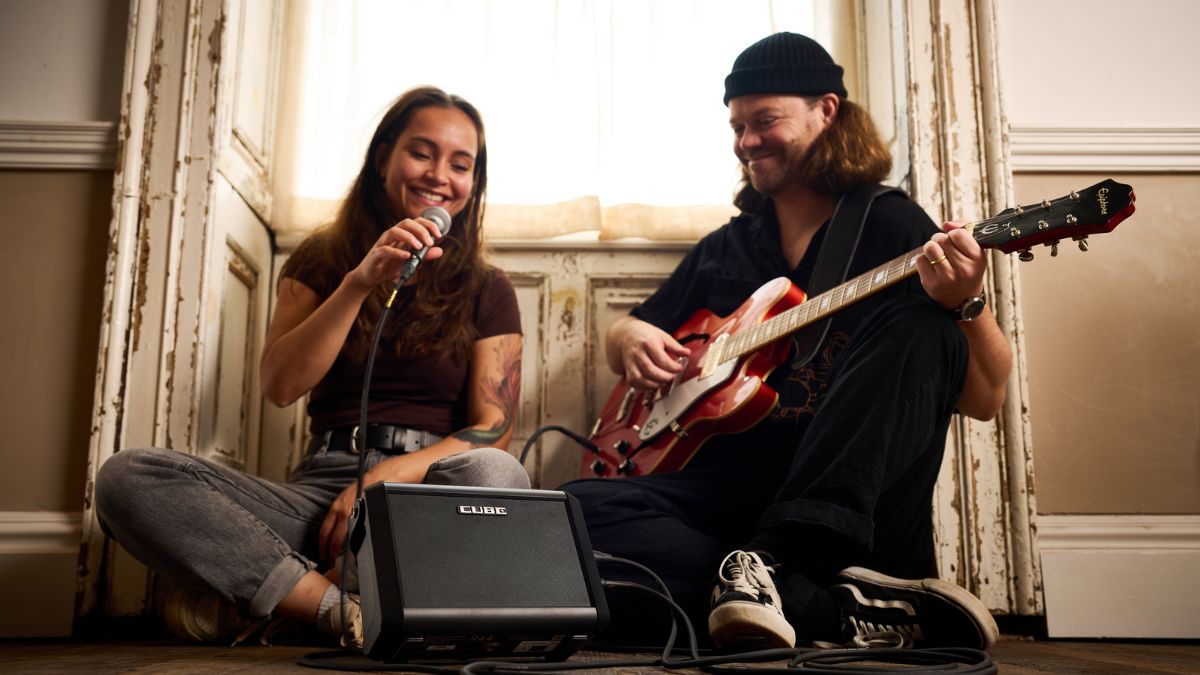The inside story of Matt Bellamy’s vision for Manson Guitar Works
Co-owner Adrian Ashton takes us inside one of the most thrilling gear collaborations between artist and luthier, and explains how the Muse frontman drives innovation at the company he co-owns
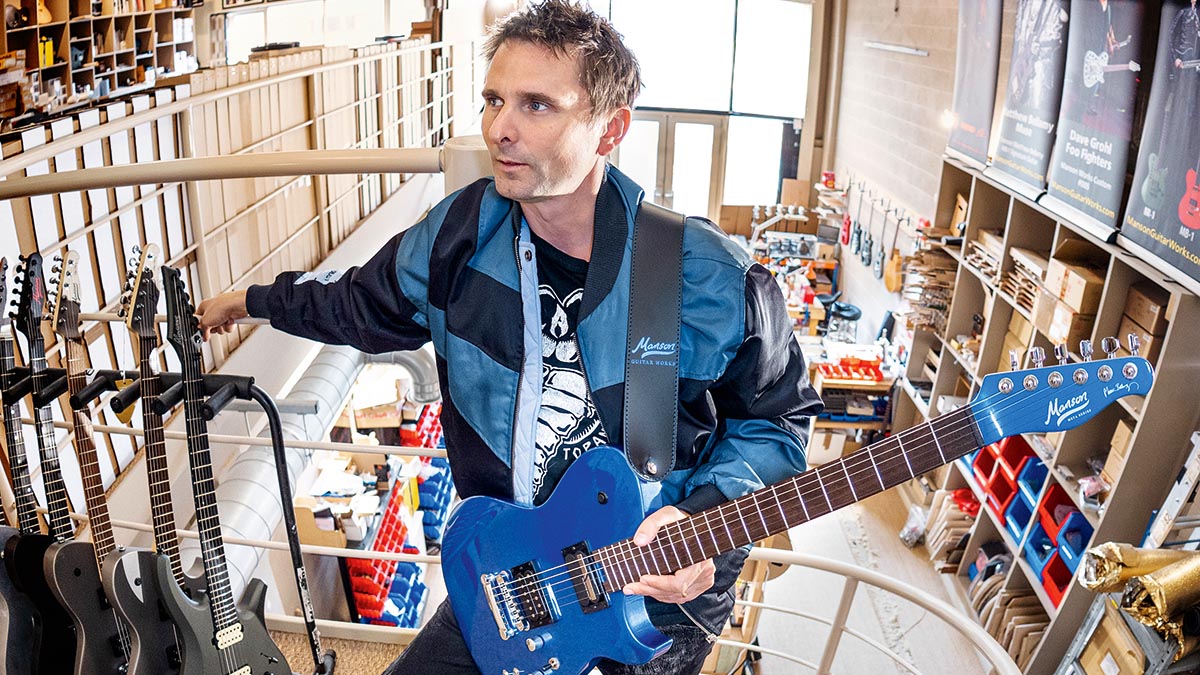
The roots of Manson Guitar Works go all the way back to the ’60s, when Andy Manson decided to build his first acoustic guitar at the age of 17. He and his brother Hugh founded the company, specialising in electric instruments, and during the ’70s and ’80s they continued to build and repair, with famous clients including Jeff Beck, former Led Zeppelin bassist John Paul Jones and former Cream bassist Jack Bruce.
But it wasn’t until the early ’90s, when co-owner Adrian Ashton came on board to help open a shop in Devon, that Manson became the business we know today.
Matt Bellamy, a player synonymous with Manson, became a majority shareholder in the company in 2019 following Hugh Manson’s retirement. And with Matt’s hands-on role in product development, there are exciting times ahead, as Adrian Ashton reveals to Total Guitar...
How exactly does it work when Matt comes up with the concept for a new guitar?
“The person who has been bringing Matt’s ideas into reality for the last 10 years is our head luthier Tim Stark. They usually get talking about projects first and also involve Chris Whitemyer, who is Matt’s tech.

“It’s all about turning those ideas into something that gets the creativity side established and feels a bit out there, but never detracts from being a really great, playable instrument. I find with a lot of wild guitars, it’s the guitar itself that lets the show down. We always keep that as our core philosophy – whatever we do, no matter how wild it gets, it’s still got to be a great guitar underneath it all.
“I was with Matt just this morning and we were looking through all the racks of different models. Every guitar felt extremely unique and individual, and yet you could pull any one of them out of the rack and it would play like a Manson guitar. I think that’s really important to us all.”
All the latest guitar news, interviews, lessons, reviews, deals and more, direct to your inbox!
From a design point of view, how did you go about creating the onboard Kaoss Pad effect?
“So it’s not actually a full Kaoss Pad inside the guitar; it’s just the screen glass. That came quite early on, when Hugh Manson was working with Ron Joyce – who is still with us now and is a great electronics designer and engineer. Ron played a big part in incorporating those kinds of electronics into the actual instrument.
You have to get the initial idea going and then the team will engineer it so it’s practical and usable, and doesn’t need a new battery every 10 minutes!
Adrian Ashton
“That’s a great example, because the inspiration was ‘I want a Kaoss Pad inside a guitar!’ and the reality was a bit different. Funnily enough, some people have seen the Manson guitar and actually tried to do that, thinking that’s how we did it.
“But no, it’s all custom boards and circuits by Ron Joyce. You have to get the initial idea going and then the team will engineer it so it’s practical and usable, and doesn’t need a new battery every 10 minutes!”
Other requests have included a built-in MXR Phase 90 and Z.Vex Fuzz Factory. What were the main challenges there?
“Yeah, the Z.Vex Fuzz Factory was one of the very early ones that featured on Matt’s original DeLorean. He also wanted an MXR Phase 90 on there too. The challenge was wiring all these things together and keeping noise to a minimum, finding a balance between two very different circuits.
“The Fuzz Factory is one of the most outrageous pieces of kit when it’s in a standalone box, but when you put it into a guitar that allows the user to manipulate the sound, things go completely off the wall. It’s doable, but it takes a lot of research, skill and ultimately a great team behind you, which we have!”
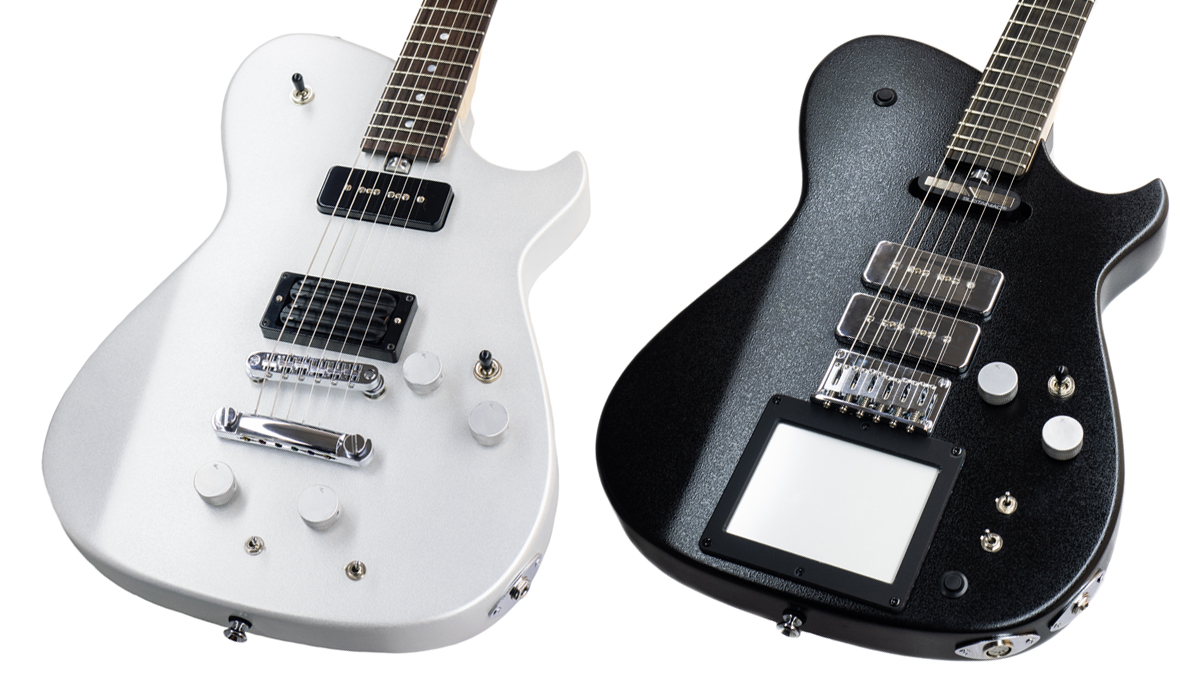
Though you’re generally viewed as a boutique brand it’s interesting how Manson now offer affordable guitars as well as custom boutique options, catering for every corner of the market.
“That’s right. Matt’s been very keen on making guitars that are affordable. His UK-made signature is about three and a half grand but we’ve since expanded to fill most market sectors. We have a licensing deal with Cort [the META series] that allows us to bring in something under £600. That range of licensed stuff is actually expanding a lot this year.
“And we’ve also decided for the first time to play on that high-end boutique aspect we’re known for with the DL-OR series, inspired by and recreating Matt’s original DeLorean. So we do everything from £600 to £6,000 and beyond, while keeping everything nice and solid in the middle!”
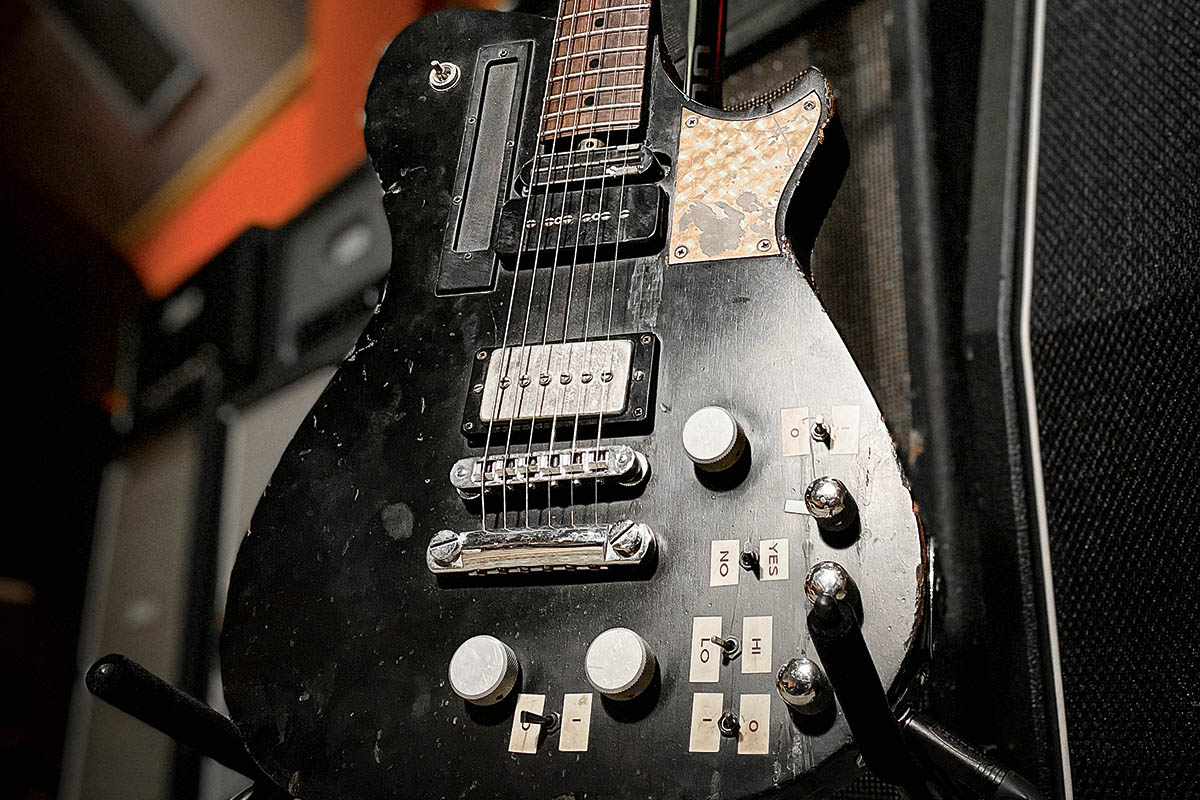
What else does Matt bring to the table for the business?
“We have fantastic input from him. He’s definitely not just a guy that’s come along and bought the company on a whim. Manson is now owned between Matt and myself – he’s the majority owner.
We’re already discussing new products that we’ll be bringing to the market... I can’t give away too much at this stage, but what I will say is that it’s not a guitar!
Adrian Ashton
“We all have a great relationship – obviously he’s a huge global artist, he’s extremely gifted when it comes to songcraft and pushing the boundaries of music and instruments. He didn’t just find us and say, ‘Let’s just keep making standard-style guitars with a couple of pickups in Sunburst!’
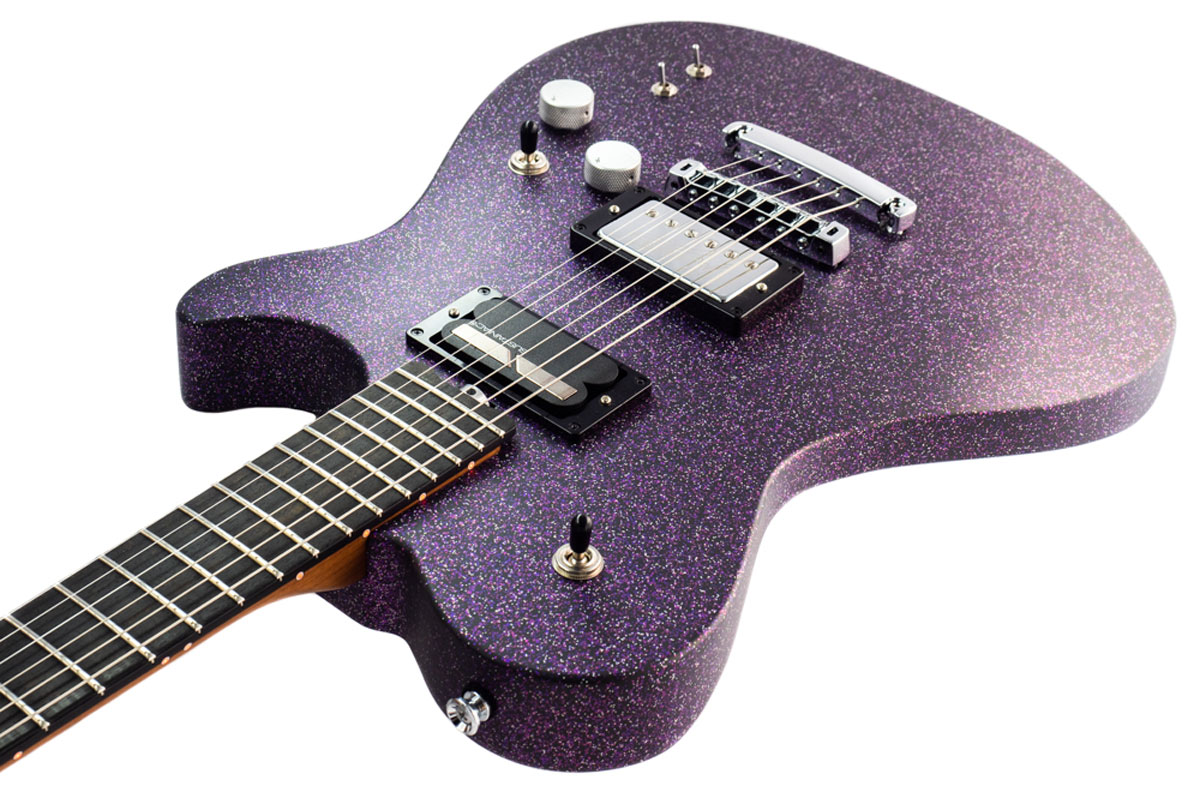
“What he brings to this company in terms of artistry is priceless, to be honest. Me and the team are there to bring his ideas into reality and practicality. It all works really well. We’re already discussing new products that we’ll be bringing to the market... I can’t give away too much at this stage, but what I will say is that it’s not a guitar!”
Matt has told us about a new pedal in the works...
“It’s very exciting. We did some playing and listening today, and I’m very excited about the sounds that were coming out. It’s going to be a great little product, but we’ve still got a little bit of a wait until we release it.”
- For more info on the company's latest designs, head to Manson Guitar Works.
Amit has been writing for titles like Total Guitar, MusicRadar and Guitar World for over a decade and counts Richie Kotzen, Guthrie Govan and Jeff Beck among his primary influences as a guitar player. He's worked for magazines like Kerrang!, Metal Hammer, Classic Rock, Prog, Record Collector, Planet Rock, Rhythm and Bass Player, as well as newspapers like Metro and The Independent, interviewing everyone from Ozzy Osbourne and Lemmy to Slash and Jimmy Page, and once even traded solos with a member of Slayer on a track released internationally. As a session guitarist, he's played alongside members of Judas Priest and Uriah Heep in London ensemble Metalworks, as well as handled lead guitars for legends like Glen Matlock (Sex Pistols, The Faces) and Stu Hamm (Steve Vai, Joe Satriani, G3).

